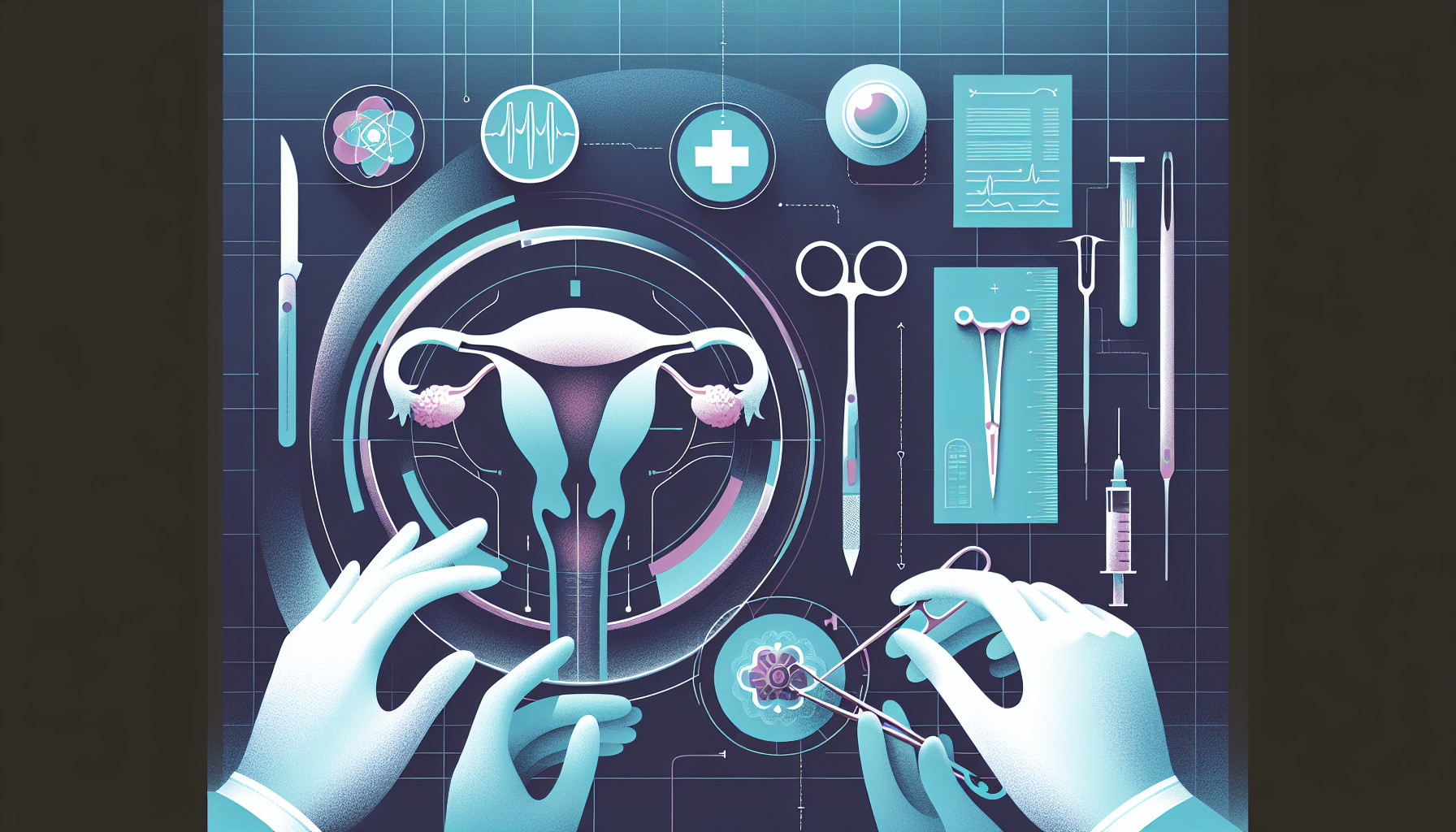Our Summary
This research was conducted to compare the effects of two treatments, laparoscopic radiofrequency ablation and myomectomy, on pregnancy outcomes in women suffering from uterine fibroids. Over 500 women participated in the study, and they were regularly checked on for up to five years after their treatment to see how many became pregnant and how their pregnancies progressed.
The study found that of those women who became pregnant, around 41% of the pregnancies in the radiofrequency ablation group and 43% of the pregnancies in the myomectomy group ended in miscarriage in the first trimester. Half of the pregnancies in the radiofrequency ablation group and 57% in the myomectomy group resulted in live births. The rest of the pregnancies had other outcomes, including fetal death and uterine rupture.
The study concluded that while both treatments can lead to successful pregnancies and vaginal births, the rates of miscarriage were higher than expected for women of the participants’ age. The researchers plan to continue collecting data to better understand these results.
FAQs
- What were the two treatments compared in this study on uterine fibroids?
- What were the pregnancy outcomes for women who underwent laparoscopic radiofrequency ablation and myomectomy?
- What conclusions were drawn from the study about the rates of miscarriage for women who underwent these treatments for uterine fibroids?
Doctor’s Tip
A doctor might tell a patient considering uterine ablation that while the procedure can be effective in treating symptoms such as heavy menstrual bleeding, it may also impact fertility. It’s important to discuss your fertility goals with your doctor before undergoing the procedure, as there is a risk of miscarriage and other pregnancy complications. Additionally, regular follow-up appointments and monitoring are essential to ensure the best possible outcomes for both the patient and any potential future pregnancies.
Suitable For
Uterine ablation is typically recommended for patients suffering from heavy menstrual bleeding, also known as menorrhagia, that has not responded to other treatments such as medication or hormonal therapy. It may also be recommended for patients with abnormal uterine bleeding, uterine fibroids, or other conditions that cause excessive menstrual bleeding.
Patients who are not planning to have children in the future or who have completed their families may also be good candidates for uterine ablation. It is important for patients to discuss their individual circumstances and treatment options with their healthcare provider to determine if uterine ablation is the right choice for them.
Timeline
Before undergoing uterine ablation, a patient may experience symptoms of uterine fibroids such as heavy menstrual bleeding, pelvic pain, frequent urination, and difficulty getting pregnant. They may undergo various tests and evaluations to confirm the presence of fibroids and determine if uterine ablation is a suitable treatment option.
After undergoing uterine ablation, a patient may experience some cramping, spotting, and discharge as the uterus heals. They may also experience relief from their fibroid symptoms such as decreased menstrual bleeding and pain. Over time, the patient may see improvements in their quality of life and may have a reduced risk of complications related to uterine fibroids.
Overall, uterine ablation can be an effective treatment option for women suffering from uterine fibroids, but it is important to discuss the potential risks and benefits with a healthcare provider before undergoing the procedure.
What to Ask Your Doctor
- What is uterine ablation and how does it work?
- What are the potential risks and side effects of uterine ablation?
- How does uterine ablation compare to other treatment options for uterine fibroids, such as myomectomy?
- What are the chances of becoming pregnant after undergoing uterine ablation?
- What are the potential risks and complications of pregnancy after uterine ablation?
- How soon after uterine ablation can I try to conceive?
- Will uterine ablation affect my fertility in the long term?
- Are there any lifestyle changes or precautions I should take after undergoing uterine ablation in order to optimize my chances of a successful pregnancy?
- How often should I follow up with you after undergoing uterine ablation, especially if I am trying to conceive?
- Are there any specific warning signs or symptoms I should watch out for during pregnancy after uterine ablation?
Reference
Authors: Allen A, Schembri M, Parvataneni R, Waetjen LE, Varon S, Salamat-Saberi N, Tassone S, Williams N, Kho KA, Jacoby VL. Journal: Obstet Gynecol. 2024 May 1;143(5):612-618. doi: 10.1097/AOG.0000000000005548. Epub 2024 Mar 1. PMID: 38422502
